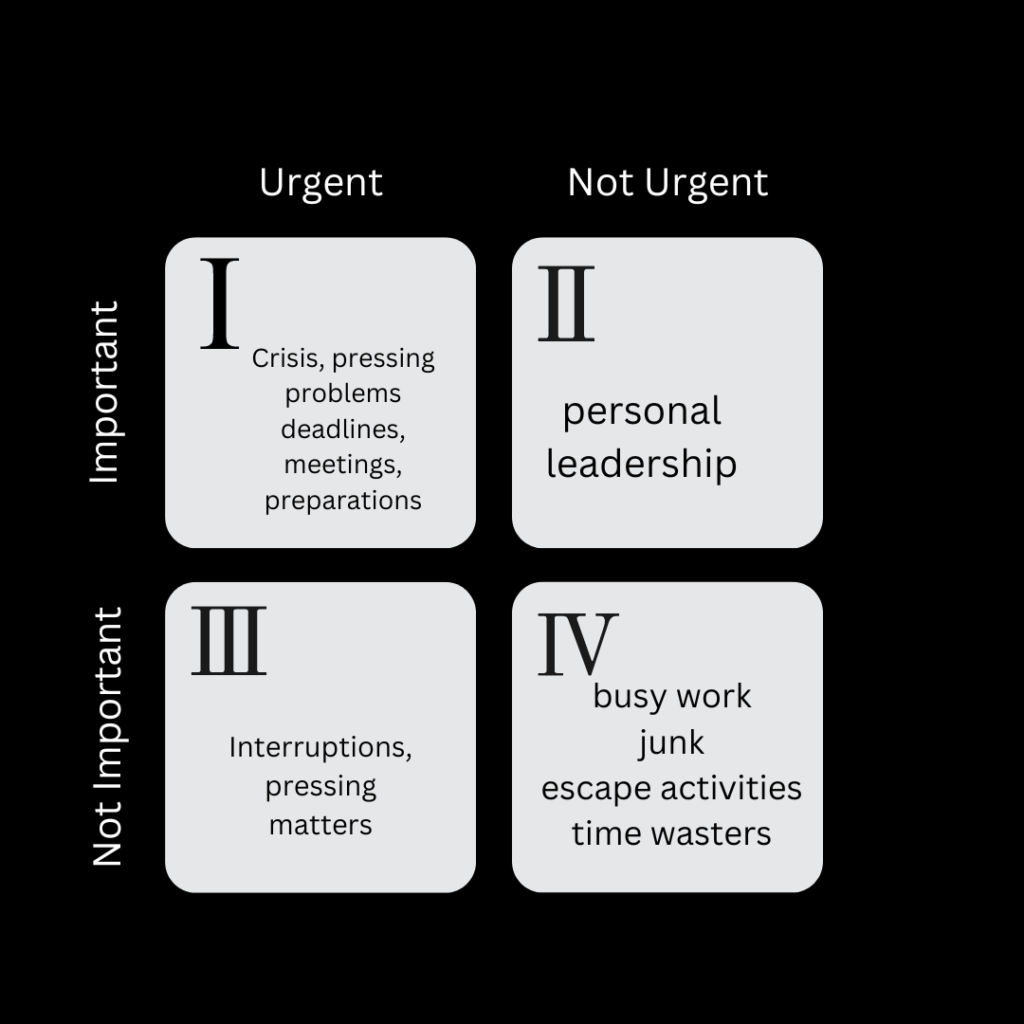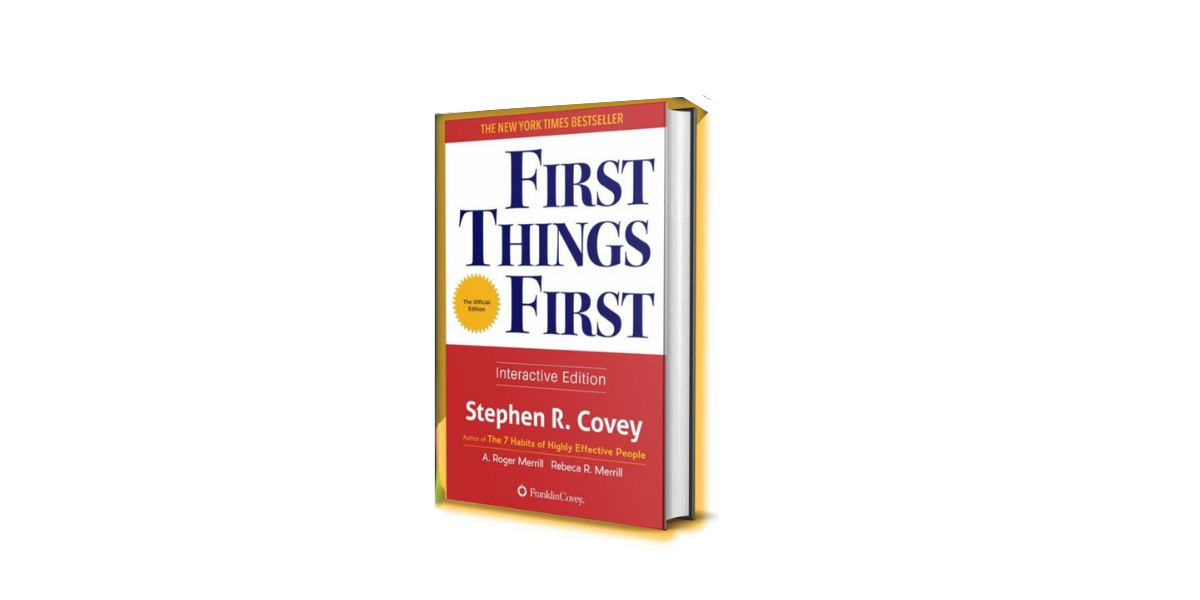Book in 1 sentence:
“Put first things first and second things are thrown in; put second things first and you lose both first and second things.”
3 take-Aways
- “The key is not to prioritize what’s on your schedule, but to schedule your priorities.”
- “You have to decide what your highest priorities are and have the courage—pleasantly, smilingly, nonapologetically, to say ‘no’ to other things. And the way you do that is by having a bigger ‘yes’ burning inside.”
- “The main thing is to keep the main thing the main thing.”
.
Notes and Quotes
The enemy of the best is the good.
Question to ask oneself: what is needed out there and what is my unique strength, my gift?
You need to have 2 things:
- The clock– commitments/ appointments/ goals/ activities. + how we manage our time.
- The compass- vision/ values/ mission + whats imp and how we lead our lives.
We can control our choices but we cannot control the consequences of our choices.
You manage things (time) and you lead people.
Myth- being busy= being productive.
Urgency addiction leads to destructive. The more the urgency, the less the importance.
.

.
To get time for quadrant 2, take it out from quadrant 3
- Management- problem oriented
- Leadership- opportunity oriented
.
“This is the true joy in life, being used for a purpose recognized by yourself as a mighty one. Being a force of nature instead of a feverish, selfish little clod of ailments and grievances, complaining that the world will not devote itself to making you happy. I am of the opinion that my life belongs to the whole community and as long as I live, it is my privilege to do for it what I can. I want to be thoroughly used up when I die, for the harder I work, the more I live. I rejoice in life for its own sake. Life is no brief candle to me. It is a sort of splendid torch which I have got hold of for the moment and I want to make it burn as brightly as possible before handing it on to future generations.”
― George Bernard Shaw
.
- Nurture Self-awareness: Personal journal (quadrant II activity): if you don’t like a result in life- write about it, have awareness. You say I won’t do it and you do it. Write it down. Analyze process your behavior. Commitment made to self and others- what done, what not. Analyze yourslef. Standing apart and learning from your own experience.
- Nurture independent will: Make + keep promises. The greatest battles we fight are in the silent chambers of our heart.
- Nurture creativity: imagine urslef in sad, unsettling scenarios and pause and see how will u react + how can you react.
Make Your Mission Statement:
An impairing mission statement represents the deepest and best within you. It comes out of a solid connection with your deep inner life. It is the fulfilment of your own unique gifts. It’s the expression of your unique capacity to contribute. It is based on principle of contribution and purpose higher than self. It Addresses all 4 human needs ( spirtual, physical, mental and social), Both character and competence: what you want to be and what u ant to do in life. Most importantly It Is written to inspire you, not somebody else.
List 3-4 things you consider first-things in your life. Consider any long-range goals u might have set Most important relations in life Any contributions you want to make, Reaffirm feelings- peace, confidence, happiness, contribution , meaning. Think about how u might spend the week if you had only 6 months to live.
Think about your Roles: mother/ daughter/ student/ employee? Then Select quadrant 2 goals in each role. Work on principles – integrity, listening, honesty, unconditional love. Create framework then analyze your week before hand .
.
The key to motivation is ‘MOTIVE’. Its why
Principle based goal setting:
- Setting context goals: what, why and how.
- Keeping a perhaps list: if an idea occurs, write here under specific role.
- Setting weekly goals: 1 /2 most important things that could have greatest positive impact.
It takes courage to realize that you are greater than your moods, your thoughts, and that you can control them. It takes courage to live a principle-centered life knowing that the choices you make may not be popular or understood by others.
Character building: what we are- integrity(ability to walk your talk, maturity(balance of courage and consideration as to what needs to be said and done but with respect and consideration), abundance mentality (life is ever expanding).
Competence- what u can do.
- Technical competence: knowledge and skills to achieve agreed upon results- to look for new alternatives
- Conceptual competence– ability to see big picture, to examine assumptions and shift perspectives.
- Interdependent competence: ability to interact effectively, ability to listen, to get 3rd alternatives , create win-win arguments
In a principle-centered life, the journey and the destination are one.
Once you are done with your mission statement, set yourself goals according to roles in respective quadrants. plan and then review!
Review the day, prioritize Evaluate

.
The passion of vision: its easy to say NO, when theres a deeper ‘YES” burning inside
Conclusion
“When you begin with the end in mind, you can more effectively fulfill the roles that matter most to you and achieve a sense of balance and fulfillment in your life.”



